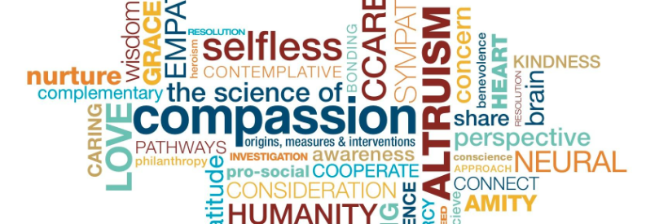|
I recently spoke with an ESL teacher at a public elementary school with lots of Syrian newcomer children and asked her what does she feel has been the greatest need after working with newcomer students and her eyes literally swelled up with tears and she was on the verge of crying. She said as kids start to develop more English skills, they start speaking more about the traumas they have seen or the post traumatic stress they still experience and she simply can't do much to help them because she is not trained to do so. And that really, she holds herself from tears in front of them but finds herself crying afterwards...
This was so timely because I believe the work I am researching, speaking, and writing on with regards to compassion in education is *absolutely* essential to not only helping newcomer students who come from war torn countries but even local children who have experienced what we call 'Adverse Childhood Experiences' - so situations like abuse, drug/alcohol addiction in the family, etc. Research shows that up to 70% of students have these experiences (Wilpow et al., 2016). I became passionate about this field as a result of being an educator for over 15 years and after completing Compassion Cultivation Training at Stanford University and learning more about compassion as the ability to recognize and alleviate another's suffering - so it requires action. Therefore, it’s more empowering than empathy because being compassionate means you actually do something to help someone else, as opposed to only empathize with them. In his book, “The Compassionate Achiever”, Christopher Kukk asserts that ‘Compassion can save and change lives and you have capacity to improve the quality of your own life’ and that it is the ‘most consistent but under appreciated characteristic of successful people across occupations is compassion’. Theodore Duftiasky supports this notion by announcing that “Compassionate people finish on top together...Compassion is the chief law of human existence’. Research on applying compassion in education has shown that it can transform our schools into more equitable places of learning and our communities into more caring and resilient spaces for growth. It can also address and decrease the rate of burnout by teachers as a result of managing the needs of students who have experienced trauma. And finally it can enable our students to build resiliency in the face of adversity and experience increased success and well-being in school and beyond in order to build a more peaceful society. (Willpow et al., The Heart of Teaching and Learning, 2016) How is a compassionate school described? "It is a school where staff and students learn to be aware of other’s challenges. They respond to the physical, emotional, and social challenges faced by students and families by offering support to remove barriers to learning. They do not judge the situations or responses to others. They seek to understand and support. “ (Wilpow et al., The Heart of Teaching and Learning, 2016). So as you can see here they not only seek to understand, or empathize, but actively seek to support by removing barriers to learning. A compassionate school would include specific ‘compassionate instructional principles’ which combine empowering students and providing positive unconditional regard as a start. It would also include building school community partnerships in order to help students succeed not only academically but also physically, emotionally, socially. And this can be achieved by discussing the importance of mental wellness coordination for students with community agencies. (Wilpow et al., The Heart of Teaching and Learning, 2016). Ultimately, compassionate education would instill a sense of hope and inspire a process of growth so our students not only survive difficult circumstances, but thrive and succeed in school and beyond. For more information or to connect with me on this, please send me a message through the Contact Form.
27 Comments
|
AuthorRaghad Ebied is an author, doctoral researcher and education and training consultant. She is currently a PhD candidate at the Faculty of Education at Western University, an Ontario Certified Teacher and has completed a B.A., B.Ed, and MSc. in Educational Leadership. She brings over 15 years of experience in education, training and consulting in Canada, the U.S and the Middle East. Archives
May 2017
Categories |

 RSS Feed
RSS Feed
